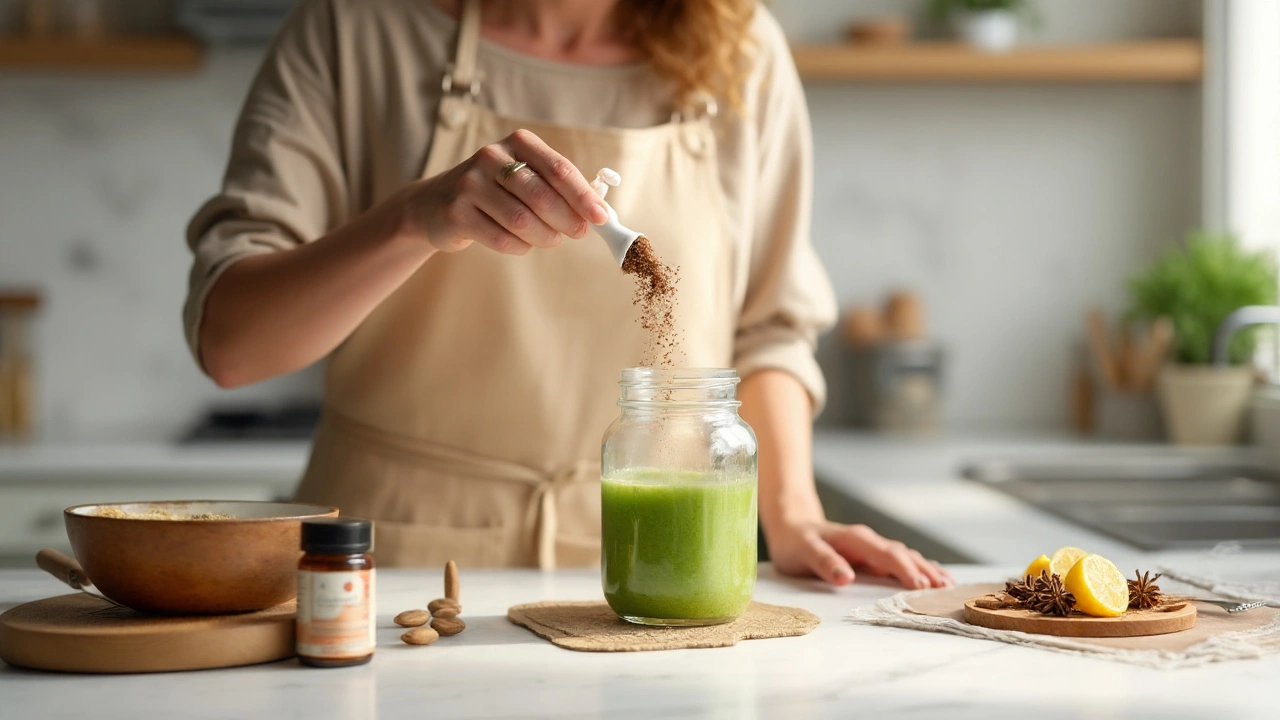Natural Anti‑Inflammatory Remedies You Can Use Today
If you’re tired of reaching for ibuprofen every time you feel sore, you’re not alone. Luckily, the kitchen and the garden are full of ingredients that can dial down inflammation naturally. Below you’ll find straightforward ideas you can add to meals, snacks, or daily routines without any fancy prep.
Everyday Foods That Fight Inflammation
First off, think about what’s already on your plate. Fatty fish like salmon, sardines, or mackerel are loaded with omega‑3 fatty acids, which calm the immune response. Aim for two servings a week – a quick grilled fillet or a canned option works just fine.
Next, swap refined carbs for whole grains. Brown rice, quinoa, and oats keep blood sugar steady, and spikes in sugar are a known trigger for inflammation. Adding a handful of berries to your breakfast oats also gives you antioxidants called polyphenols that act like tiny firefighters at the cellular level.
Don’t forget the power of color. Bright veggies – think bell peppers, carrots, and leafy greens – contain vitamins A, C, and K that support tissue repair. A simple salad with spinach, orange slices, and a splash of olive oil delivers a punch of anti‑inflammatory compounds in under five minutes.
Herbs and Supplements for Quick Relief
When you want a boost beyond food, herbs step in. Turmeric, the golden spice, contains curcumin, a compound that blocks inflammatory pathways. Mixing a teaspoon of turmeric with warm milk or a smoothie gives you a gentle, daily dose. Pair it with a pinch of black pepper – it dramatically improves absorption.
Ginger works similarly. Fresh ginger tea, or adding grated ginger to stir‑fries, can reduce joint pain within days for many people. If you’re looking for an easy supplement, a standardized ginger extract capsule can be a convenient alternative.
Another staple is garlic. Its sulfur compounds have been shown to lower inflammatory markers. Just a clove or two in soups, sauces, or roasted vegetables makes a big difference without altering flavor dramatically.
For those who prefer a single supplement, omega‑3 fish oil capsules are widely available and can fill the gap if you don’t eat enough fish. Look for products that guarantee at least 800 mg of EPA/DHA per serving and are certified free of heavy metals.
Finally, stay hydrated. Dehydration makes blood thicker, which can aggravate inflammation. Drinking water, herbal teas, or infused water (like cucumber‑mint) throughout the day keeps circulation smooth and supports the body’s natural healing processes.
Putting these tips into practice doesn’t require a total diet overhaul. Start by adding one fish meal, a side of colorful veggies, and a daily turmeric drink. Over a few weeks you’ll likely notice less stiffness, fewer aches, and more energy. Remember, consistency beats intensity – a small, sustainable habit beats a big, short‑lived effort every time.
Give your body the natural tools it already has, and you’ll find inflammation losing its grip without needing a pharmacy counter.
-
22
Discover how the allspice dietary supplement works, its key health benefits, safe dosage, and how it stacks up against other natural supplements.
Tags Weight
- online pharmacy
- side effects
- medication safety
- dietary supplement
- dosage
- online pharmacy safety
- drug interactions
- generic drugs
- health benefits
- allergy relief
- autoimmune disease
- antibiotic
- pharmacy reviews
- affordable antidepressant
- gut health
- safe online meds
- prevention
- patient safety
- NSAIDs
- drug interaction

